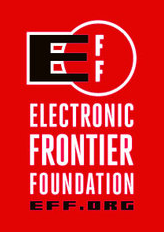‘THE net interprets censorship as damage, and routes around it.’ This quote from John Gilmore, a founding member of the Electronic Frontier Foundation, often appears on the Internet. It reflects its users’ confidence that their electronic world, designed to resist nuclear attack, can also shrug off government regulation. By nature of its global reach and its decentralised design, they believe, it is unpoliceable.
They may be mistaken.
— Christopher Anderson, The Accidental Highway, The Economist, 1995
Governments of the Industrial World, you weary giants of flesh and steel, I come from Cyberspace, the new home of Mind. On behalf of the future, I ask you of the past to leave us alone. You are not welcome among us. You have no sovereignty where we gather.
— John Perry Barlow, A Declaration of the Independence of Cyberspace, 1996
Fifteen years later, Barlow is calling the troops to battle: “The first serious infowar is now engaged. The field of battle is WikiLeaks.”  And Gilmore’s observation once again proved accurate, as hundreds of sites begain mirroring Wikileaks and Twitter briefly functioned as a ‘sneakernet DNS’.  Then Anonymous stepped up, first with denial of service attacks against PayPal, MasterCard and Visa, and now with Operation Leakspin.
Electronic Frontier Foundation, founded by Gilmore and Barlow 20 years ago along with Mitch Kapor, is calling troops to battle as well with their Say No To Online Censorship campaign. What’s the impact likely to be? So far, there have been a couple of blog posts: Executive Director Shari Steele’s Call To Action, and Kevin Bankston’s legal analysis Information is the Antidote to Fear, valuable reading for anybody at a web 2.0 or media company.  But they’re clearly capable of a lot more.
One place EFF could make a big difference is if they and their allies decide to get involved with the Amazon boycott. As EFF’s Rainey Reitman and Marcia Hoffmann in Amazon and WikiLeaks – Online Speech is Only as Strong as the Weakest Intermediary:
Other Internet intermediaries should now expect to receive a phone call when some other member of Congress is unhappy with speech they are hosting. After all, it worked on Amazon.
The stakes are high. As Rebecca Mackinnon writes in WikiLeaks, Amazon and the new threat to internet speech,
The future of freedom in the internet age may well depend on whether we the people can succeed in holding companies that now act as arbiters of the public discourse accountable to the public interest.
 Indeed. Quoting Barlow from 15 years ago:
Indeed. Quoting Barlow from 15 years ago:
In China, Germany, France, Russia, Singapore, Italy and the United States, you are trying to ward off the virus of liberty by erecting guard posts at the frontiers of Cyberspace. These may keep out the contagion for a small time, but they will not work in a world that will soon be blanketed in bit-bearing media.
Your increasingly obsolete information industries would perpetuate themselves by proposing laws, in America and elsewhere, that claim to own speech itself throughout the world…. These increasingly hostile and colonial measures place us in the same position as those previous lovers of freedom and self-determination who had to reject the authorities of distant, uninformed powers.
As Aaron Bady says on Zungu Zungu, there is something to see here. Stay tuned.

jon | 25-Dec-10 at 10:21 am | Permalink
As far as I can tell, Phil Ebersole is the only person other than who’s talked about the Declaration of Independence of Cyberspace and Wikileaks.
Attention: Calling the Troops to Battle: EFF’s Say No To Censorship Campaign « paybackit | 30-Dec-10 at 4:06 am | Permalink
[…] Check link here […]